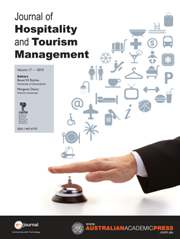Article contents
The Australian Hospitality Industry's Response to Formalised Enterprise and Individual Bargaining Prior to the Rudd Government
Published online by Cambridge University Press: 23 February 2012
Abstract
Formalised enterprise bargaining has been part of the industrial relations framework in Australia since 1991 while formalised individual bargaining was introduced in 1996. Since their introduction formalised collective and individual bargaining have been adopted enthusiastically in some industry sectors; however, the Australian hospitality sector has been unenthusiastic about formalised bargaining. The sector has continued to rely on awards. This paper analyses this unenthusiastic response and concludes that for many small and medium hospitality employers awards provide flexibility, particularly in relation to numerically flexible work arrangements. Additionally, it appears that award wages are not above market wages; employers believe there are considerable complexities associated with formalised bargaining and also they have been concerned by the degree of employee resistance to these agreements.
- Type
- Articles
- Information
- Copyright
- Copyright © Cambridge University Press 2009
- 2
- Cited by


